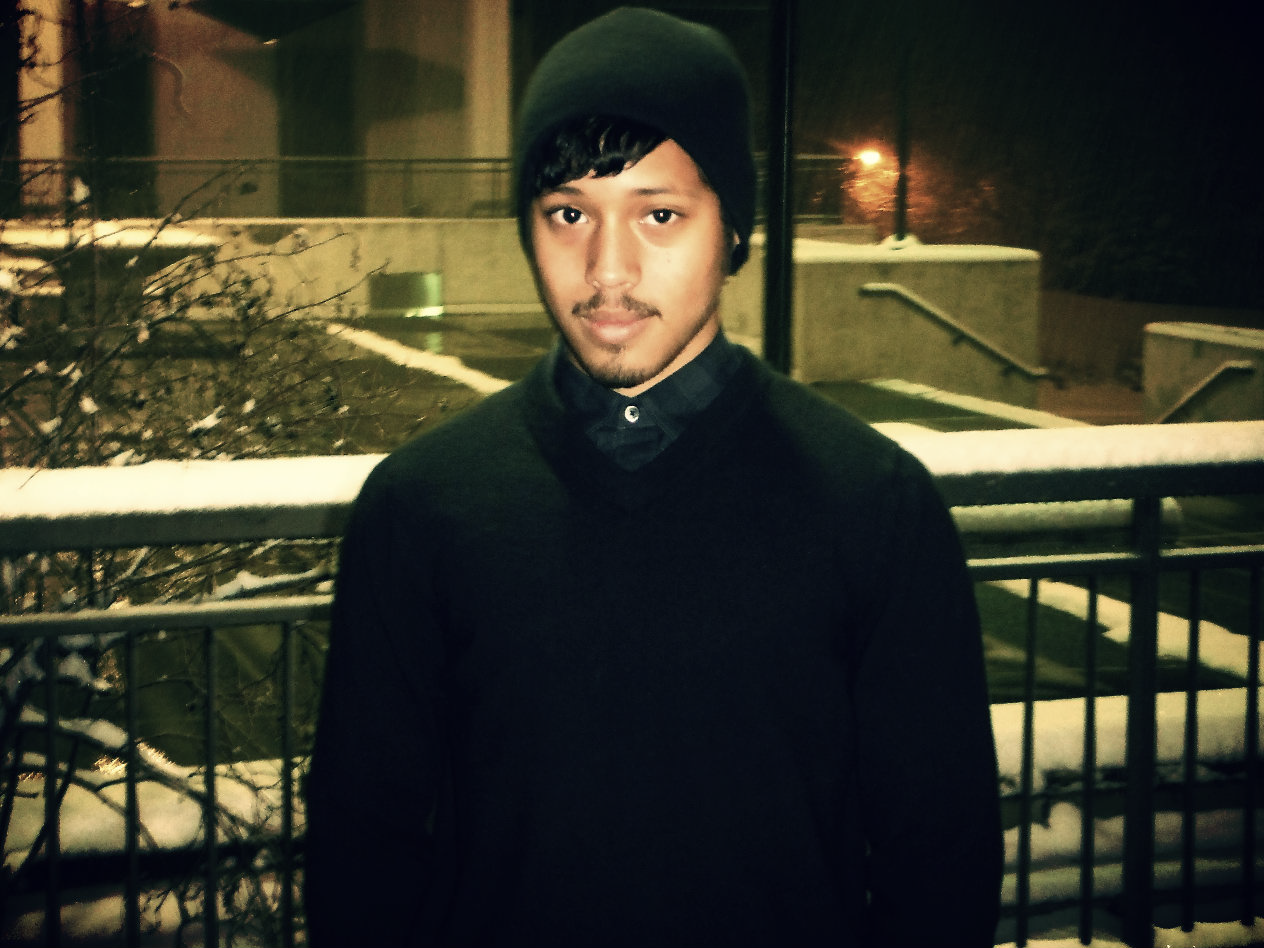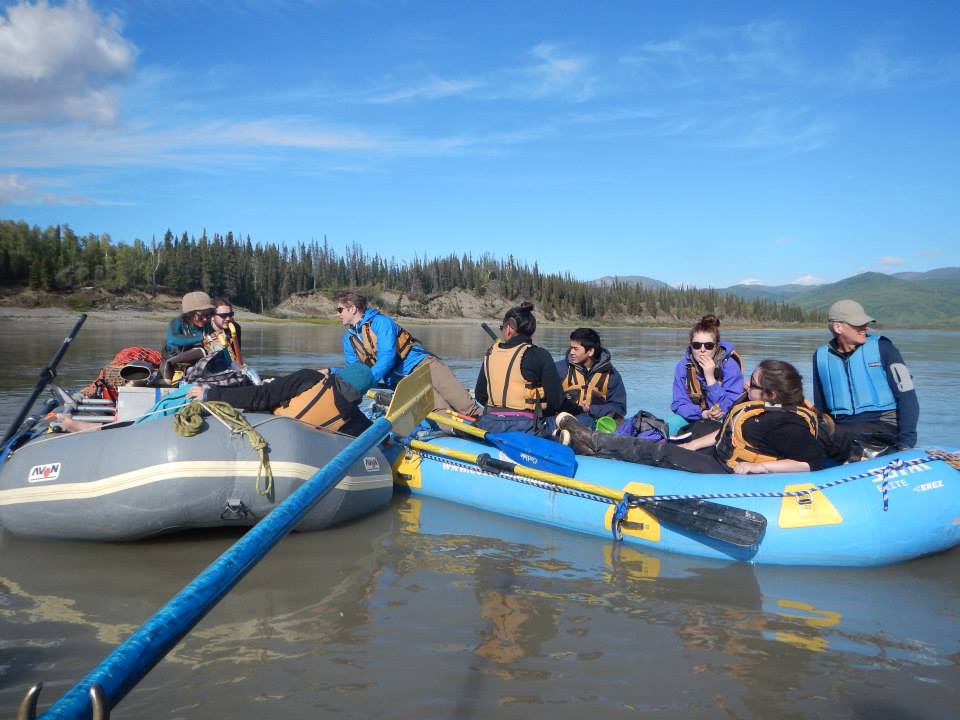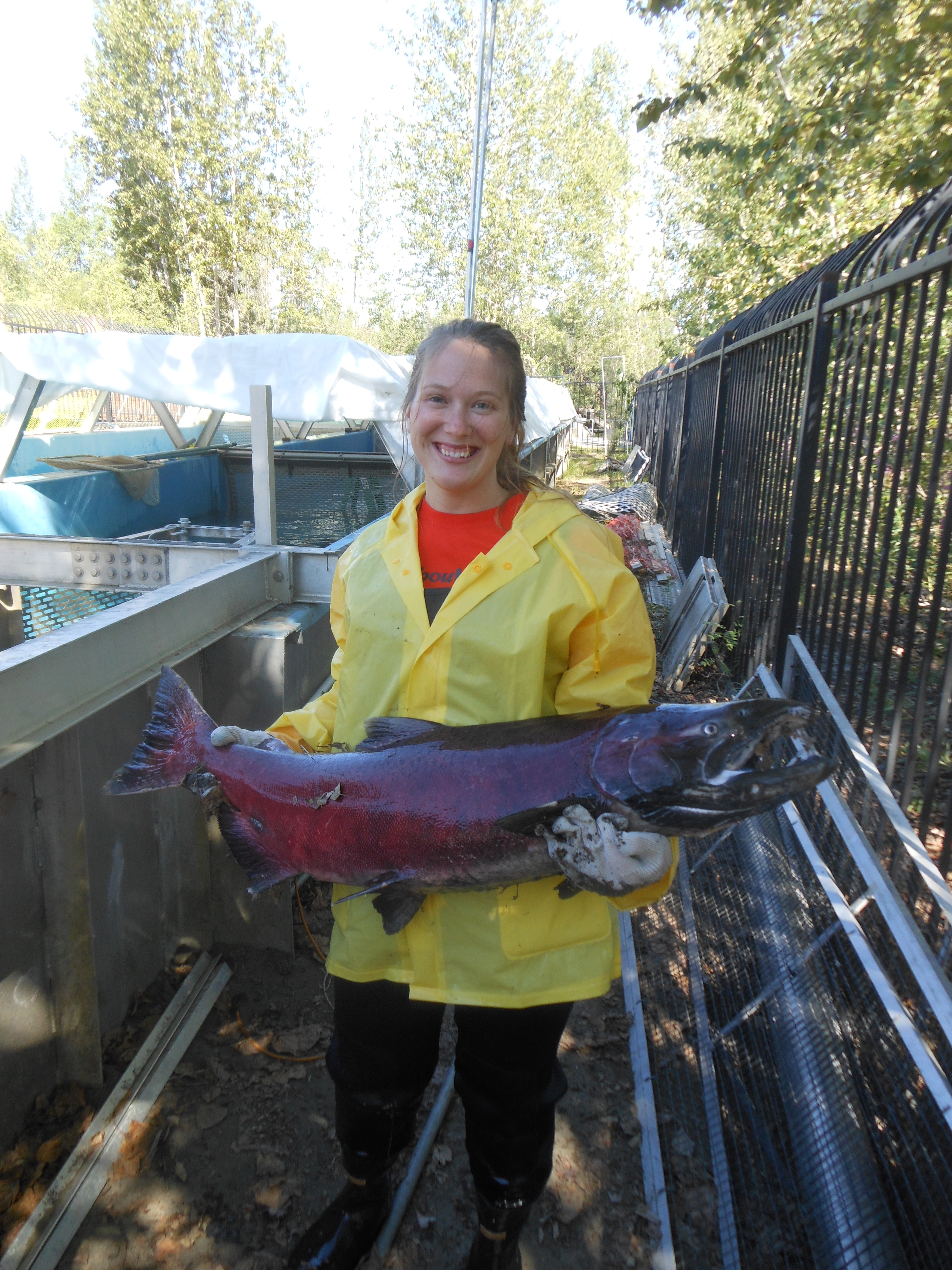By Evan Nasse
In my garage sits the skull of a caribou. It has a misshapen rack, jutting out the top of a bright, white, sloping caricature of an animals face, pockmarked with several holes. Where there was once a mouth, for the lackadaisical chewing of cud, are now rows of cracked teeth, and further up the snout are two empty spots where once eyes beamed. There, just above the right eye socket is the hole where I unceremoniously placed a bullet, using a worn hunting rifle owned by my grandfather. The miserable creatures’ offset rack and dome-piece sit bolted onto an ornate, hand crafted, wooden mantle. It was constructed by my grandfather after our successful hunt to add to his display of his other, varied taxidermic victims. It’s a surreal sort of experience, the first time you take an animal’s life. The barrel of the gun smoked for a second or two after I fired, and I stood there watching the life slowly twitch away from the animal.
At age 16, I was one of the best shooters the Bartlett Riflery team had to offer. We didn’t take state, but we certainly were not last. The rifle I had used happened to be the one which had been issued to Alaska’s riflery champion, Brandon Zarzoza, when he set the state record. I would later become friends with him through the grapevine of our mutual friend, Sean Amato. Small town, small world. After my last competitive riflery season I earned my Letter, to which I decided needed no jacket to have it sown onto, especially since graduation came just a few weeks afterwards and I had no desire to look like a tool. My family was proud of both accomplishments, being the first in the family to earn a Letter in any sport and to graduate, which had become a subject that was in doubt as to even happening. Accusations of being “smart, yet lazy,” were ironic to me, as I no doubt deserved the comments, I even agreed with them. However, I was too lazy, or fed up, or tired, to argue my reasoning for being lazy. Nobody ever thought to ask if I was smart, but depressed.
During the last two or so years, I have had several opportunities to explore my family’s past, on both my mother’s and father’s sides. There were some facts, figures, lineage, ancestry, etc. which I had already known or had access to, especially on my father’s side: German descent, royalty, family sword, family bible, war, war, war, pride, pride, pride… I cannot help but to think that there are several facts hidden behind locked doors and inside secret letters, filed away in dusty, unmarked envelopes, which would remove the nostalgic and whimsical smiles they hold on their faces when speaking of their—our—past.
Rarely ever brought to the discussion are the damning facts. Such as the fact that on my father’s side, my grandmother’s family had owned a sugar plantation during the 1800’s in the deep south—slaves included—or about his father, who is the son of a union busting scab for the railroad, who had worked his way up to Platform Chief by stealing jobs from unionized men. These are the facts discovered through research, and corroborated only with a nod and an “Mm-hmm. Sure did. Now let me tell you about…” They don’t necessarily lie, but there is a lingering sensation that they are not being entirely truthful.
“I don’t know much about my dad—your great grandfather, or much about my mother, for that matter.” My grandfather knows more than he is willing to say, but he doesn’t like to open up, my mother later tells me that this is typical of him. James ‘Jim’ Garrison, my mother’s father, whom is the source for my middle name, is a giant. At 6’5″, he towers over most of the family, he has arms and legs thicker than tree trunks, muscular, with a shiny bald head and a barrel chest. He would pick my brother and I, ages 3 and 7, up by our legs, dangling us upside down, like prize winning salmon. He has catcher’s mitts for hands, and an almost literal iron grip—I’ve personally seen him wrench an acorn-sized rusted bolt free with his bare hands, claiming, “There ain’t enough grip with this damn monkey wrench.” My jaw drops, he tosses the bolt in the trash. The wrench didn’t have enough grip because he bent it, stripping the teeth in the process.
Accuracy is something we all strive for; accuracy of facts, memory, philosophies, life. The practical applications are obvious. The application of practice is necessary. Even more so if it is a skill, or art. There is a romantic vision in people’s minds as to how to fire a gun, often there is the cliche in movies where a character hands a gun of some sort to another character and asks if they know how to use one. “Just point and shoot, right?” The character, newly acquainted with firearms, is now a marksman on par with Wyatt Earp or Vassili Zaitsev. There is more to guns than that, folks.
First, is the dependance on which type of firearm you will be shooting, as well as which position you will be firing from. You see Bruce Willis jumping off a table, gliding through the air and landing two head-shots. Sorry, nobody who has fired a gun before would even waste their time or the bullets, since you won’t hit anything whilst air-born, it’s difficult enough to attempt walking while shooting and maintain some semblance of planned accuracy. Typically, handguns are fired from a standing position, as you will be able to brace your arms far better and the recoil will have less effect on the accuracy of your subsequent shots. With a rifle, the preferred stance would probably be prone or kneeling, as prone allows you to use your arms as a bi-pod and kneeling provides a uni-pod type bracing. Standing while firing a rifle is the most difficult, as you must support the weight of the rifle and hold your target in line with the rifle’s scope, requiring more concentration than most will realize.
Secondly, there is a focus you must maintain to achieve accuracy with your intended targets. Before, during, and after practices and matches, the coach would lead our team through relaxation exercises. During matches with other schools the shooting range is dead silent, perhaps the quietest sport you could attend, as disruptions will cause team or personal point deductions for throwing off someone else’s shot. Preparing to shoot, you will breath in and exhale slowly several times. You will tense your muscles ever so slightly, finessing the scope to align with the tip of the muzzle and hover over the center of the target. Deep breath in, hold. Deep breath out, hold. For an instant, a fraction of time will allow you, if confident in your accuracy, to fire the shot where you intend it to be and you plunk a hole through the center. You relax your muscles and begin the process again.
Grandpa Garrison purchases for my brother Taylor and I Red Rider BB guns as a Christmas present. Mom scowls, dad sits us down immediately and tells us that the scene from A Christmas Story was a cautionary tale, as you can, in fact, shoot your eye out with a BB gun. We nod, happy to be able to have a place to fire them safely. The back of the house has a high fence, and a deep sloping hill in the other side, leaving no opportunity for rambunctious little shits to pelt windows or cats should the opportunity present itself. We were smarter than that, of course, but just the same, Ralphie thought he was going to be responsible too. Neither of us shoot our eyes out, however there was a small massacre of soda cans in the backyard, riddled with holes and lying on the ground like tiny aluminum Bonny and Clydes. Grandpa smiles, he knows he’ll have at least one, if not two hunters to train and take with him.
My mother became a wealth of knowledge regarding her family’s seedier history. I get names, dates, and facts which would have gone unrecorded had I not asked. Grandpa’s mother had him when she was 15. She was raped. She was originally from Utah and grew up on an Indian reservation. She moved to Washington because her cousin wanted her to come help with the farm. Nobody knows who the father was. There was no investigation of the rape, for several reasons: technologically, there was no way of proving who the perpetrator was and she was an Indian girl from Utah, probably a mormon, or worse. Nobody cared, back then. My research on several ancestry websites corroborated much of the evidence my grandfather claimed to be ignorant of. Her name matched, the census dates confirmed her moving date, and his birth record included her age: 15. She was some predators prey, unfortunately. He knew more, but this was not a subject he ever wanted to bring up—to him it was in the past, dead and buried and unsolved. “When are we gonna go huntin’ again, eh? We’ve been out of caribou sausage for a while…” I smile and nod, “Yeah, I’d love to do that again.”
The first time he asked if I wanted to go hunting was shortly before I graduated high school. He stopped by the house and briefly mentioned that he was going hunting, some time soon. That was the end of it, no further mention, which is how it always was. He always assumed that was all that was necessary to invite someone; mention it once, in passing, and if they’d like to go I want them to pose the question.
Growing up I remember seeing all the pictures around their house, framed photos of him with other hunting buddies and their kills—the only one alive today in any of those dozens of photos is him. Grandpa was constantly hunting, or fishing, or just outdoors doing outdoorsy things, making Teddy Roosevelt, John Wayne and Davey Crockett proud.
Some time later I was lucky enough to have a day off. My mother calls me as I’m wasting time, in a very wasteful manner. “Your Uncle Milton doesn’t want to go hunting with your grandfather. He won’t ask you to come, but I know he’d love it if you did. Please, for me, don’t let him go hunting by himself. He’s capable, but he’s getting old.” I agreed. Talking on the phone with him is even less personal and brief than in person, as it is with anyone you talk to on the phone, but especially with him. “Mm-hmm. Yeah. Okay. See you tomorrow.” In all of thirty seconds or less I had dedicated myself to something I’ve never done before, and would unknowingly change my perspective forever; hunting.
Ever the curious, 21st century, digital boy, I decided to look up hunting online. I don’t recall exactly what I found the day before the hunting trip, but a quick search brought me results from Wikipedia stating, “Hunting is the practice of pursuing any living thing, usually wildlife or feral animals, by humans for food, recreation, or trade.” It seems fairly accurate, however nothing you find online will actually prepare you in any way, shape, or form the actual “act” of hunting. I suppose some citation is needed. I wanted to know more accurately what I was stepping into.
Just past Wasilla and Palmer, out near Hatcher’s Pass where the slight cold of Anchorage has been transformed into snowcapped mountain sides and frosted trees. Grandpa’s great, big, green Ford pickup pulled along a path, a single unpaved lane, covered in snow and gravel, towards the designated hunting area for caribou season. Several gunshots are heard every now and again, the cold snowy air adding to the sharpness of the resounding sonic booms. More trucks, some with snowmobiles or caribou carcasses in their beds. There must be some sort of law requiring outdoorsmen to own pickup trucks.
An hour or two passes. The conversation up had mostly consisted of awkward silence, the both of us expending the breadth of our conversational capabilities with each other. I made meager attempts to punctuate the silence after we had lost the radio signal with questions. Where are we going? About how long should this all take? I don’t have a hunting permit, is that a problem? Will it (the caribou carcass) fit in the back of the truck? Each question responded to in kind with a short sentence, a single syllable word, or a nod. “Mm-hmm,” or “Mm-mmn,” were his typical responses for answering questions when he is annoyed. We drove along the path until eventually we had a few sightings of other hunters in pursuit, rifles brandished in their arms, safely pointed at the ground as they perform an awkward half jog across the road in their Carhartt coveralls and plaid jackets. They resemble Elmer Fudd hunter stereotypes—flapped hats and all. It would have been a far more hilarious moment to me had I not just witnessed a caribou with a gaping bullet hole in it’s side dripping and spraying blood everywhere as it sprinted away from them.
Deep breath in, hold. Deep breath out, hold. It sees me, the caribou with an oddly shaped rack and a wound in it’s hindquarters from my grandfather’s shot earlier. I pull the trigger of the rifle, just as he turns to run away. Time slows down after the rifle cracks explosively and I feel the ringing of the high pitched letter “E” in my ears. In an instant I see a hole about the size of my thumb open in the poor animal’s neck and a slight mist on the other side painting the tree like someone testing the nozzle of a spray paint can. It drops before I lower the rifle. “Good shot, kiddo!” I feel a slap on my back as he lumbers towards the beast. We’re both tired. After the initial shot taken by my grandfather, we hopped out of the truck and started running as best we could through the knee-high snow. For close to an hour we tracked a red speckled trail from a creature terrified for it’s existence. During this trek through snowy woods we wound up having to fire a few warning shots at a bear—I don’t believe we were it’s prey, but all the same it seemed fittingly ironic.
The twitch-twitch of the caribou’s legs was an incredibly morbid sight to behold; however, this was about to become a far messier endeavor than I had even initially guessed. Grandfather rests on his knees as he unfurls a small leather bag a few feet away from the caribou, a display of old knives gleam menacingly. It resembles the torture device bags you often see in movies: a long, wide, serrated knife, a deviously thin knife, one with a hook, a bone saw—Crocodile Dundee would call these “real knives.” He looks up at me and extracts another bullet from his breast pocket. “Here, it’s not quite dead enough. Put another one in ‘im, but make sure not to hit the dome or the skull, might ricochet or shatter. Stick it right above his eye.” I nod, taking the bullet from him and loading it into the rifle. Looking down at the caribou, I place the butt of the gun against my shoulder and tickle the rifle’s trigger, accuracy will be negligible here. Blam! Silence.
The majority of the caribou’s guts are splayed out on the ground, making grisly steam rise into the cold, thin air. I ask if there’s anything I can do to help. “Mm-Mmn.” I watch and learn, a brief shimmer of disgust on my face. So far the dissection following the hunt had not gone entirely according to plan, with the first incision of the caribou resulting in grandpa accidentally slicing his knuckles wide open. His medication of blood thinners and heart medicine cause him to gush blood like a Tarantino film, with more of his own spilling on the ground than the caribou’s. “Aww, FUCK!” An awful smell punctuates the air. He has accidentally cut into the beast’s intestines and is frantically yanking the remainder out of the corpse so as to avoid spoiling the meat. After a short time of watching this gory, macabre display he sighs loudly and unceremoniously announces that it will probably have to be cut in half, as it is too heavy and too far from the truck to drag in one piece. He’s tired, sweating and bleeding. He hands me the bone saw and points to the part in the spine he needs me to cut.
I was grateful that, after the long haul back to the truck—where I was nearly certain he was going to pass out and bleed to death—that there was an old married couple, out and about for a romantic hunt, who were nice enough to lend some help with their four wheeler to get the second half of the carcass back and loaded into the truck bed. I do my best to bandage his hand with what was available—a handful of band aids meant for scraped knees, a roll of black duct tape meant for a torn tarp, some Saran Wrap that was leftover from a sandwich—and we begin our long drive back home. I fall asleep. I dream that I am being chased.
[author image=”http://profile.ak.fbcdn.net/hprofile-ak-ash4/623484_1780570975_740499583_q.jpg” ]Evan Nasse
I am currently a sophomore studying liberal arts with a concentration in writing at APU and a minor in business. My passion is writing screenplays, however I still enjoy the other forms of creative writing such as flash fiction, creative nonfiction and science fiction. I hope to one day be professionally writing scripts for film and/or television. [/author]


